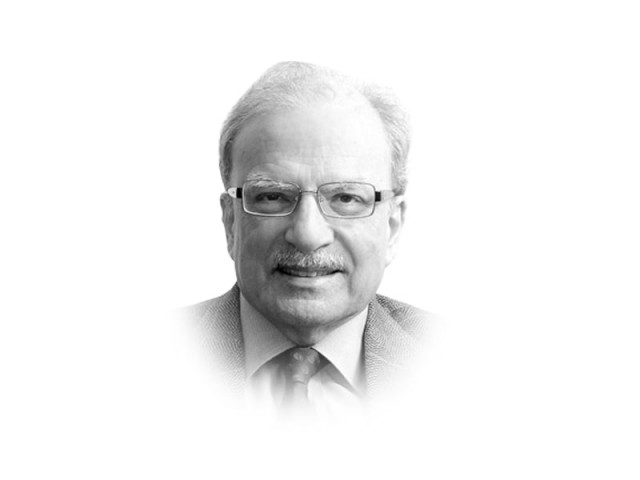Marches and forward movement
Sustained economic progress will not come about without political stability.

Marches and forward movement
Pakistan has been urbanising rapidly. The proportion of urban population is perhaps, as high as 50 to 60 per cent of the total. This means that over 100 million people live in towns and cities. Urbanisation is occurring not only because of the migration of rural folks from the rural to urban areas. The rapid development of communications and social media have brought urban values and attitudes to the rural population.
The third element in this changing situation is economics. There has been a significant slowdown in the rate of economic growth. Between 2008 and 2013, the economy grew at an average rate of three per cent a year. This was less than one-half the rate of increase needed to accommodate some million and half newcomers who join the workforce every year. There is considerable underemployment. Even those who are not fully employed end up providing a helping hand to their households. This keeps the unemployed somewhat occupied but adds little or nothing to household income. There is much ‘disguised employment’ in both rural and urban areas.
The fourth element is politics. In Political Order in Changing Societies, Samuel Huntington suggested that relative deprivation can alienate people to such an extent that they resort to agitation to attempt to change the existing structure in their favour. The political-economist, Albert Hirschman in Exit, Voice and Loyalty, wrote about the three options available to those who are alienated from the system. If voice and loyalty are not possible, the disgruntled head for the exit. This is what hundreds of thousands chose to do by marching to Islamabad on August 14.
That the demographic and economic changes would unleash destructive political forces should have been anticipated. To understand why that could happen, we should compare two different developments in Pakistan’s neighbourhood. It was relative deprivation that drove youth in the Middle East to enact the Arab Spring. Those who thought that that convulsion will bring about the long-awaited political development of the area should have understood that it takes time and effort to create inclusive representative political systems.
The other example comes from India. The wave of alienation and resentment in that country produced by the tired management of the economy and the political system during Manmohan Singh’s rule also produced a convulsion. However, it did not take the form of destructive marches, but the electoral triumph of Narendra Modi. The inherent institutional strength of the Indian political system was able to absorb in a constructive way, the dynamics unleashed by the weak performance of the Singh administration.
Are there lessons to be learnt in Pakistan? The answer is yes and it points towards the possible adoption of a different approach. Those who are interested in shaping a better future must recognise that political change, to be durable, must be supported by economic and social development. The converse is also true. Sustained economic progress will not come about without political stability. There has to be simultaneous movements on a number of fronts.
Published in The Express Tribune, August 18th, 2014.
Like Opinion & Editorial on Facebook, follow @ETOpEd on Twitter to receive all updates on all our daily pieces.















COMMENTS
Comments are moderated and generally will be posted if they are on-topic and not abusive.
For more information, please see our Comments FAQ